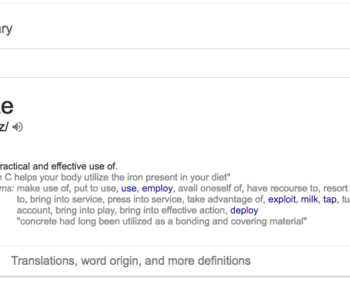 Career
Career
Mansplaining: The Verbal Glass Ceiling of the Workplace
Privileged explaining is when someone explains something in a patronizing tone because they think there is no way the subject could possibly know it on his or her own. Mansplaining is one of the most egregious examples, but certainly not the only one.
Count the number of times in a day a female employee is interrupted by a man, or that a man explains something to her that she already knows as part of her job. According to research, men and women both interrupt women more often than they interrupt men.
It’s a growing and more discussed phenomenon now that there’s a label for it. But the problem is that the explainer may not even realize they are contributing to the problem—and they may even think they’re being helpful. To use a more benign example:
“Wow that was crazy!” Maggie shouted after the Patriots’ Malcolm Butler caught Russell Wilson’s pass.
“Yeah, he intercepted it,” says Bobby. “That means the defense stole it from the offense.”
What seems like an over-the-top conversation is commonplace, because it’s often assumed women don’t know as much about sports as men. The explaining, as in the example, is generally unsolicited. Bobby may not even be aware of what he did.
But with a little extra self-awareness and a tone check to make sure you’re choosing the right words, you can avoid mansplaining anything from sports to more hot-button topics. And if someone tells you you’re mansplaining, listen first before you deny it, and evaluate your behavior as objectively as you can.
Recognize an opinion.
The subconscious can take over in conversations and before you realize it, you’re telling someone else they’re wrong—even if the discussion is based on opinions. The troubling thing about opinions is we sometimes forget that they’re just that: opinions. If you’ve grown up thinking a certain way all your life and it’s gone unchallenged, it’s hard not to view your judgments as fact.
Pay attention to assumptions you make, and find ways to let them go. Just as you try to look at business ideas in new ways, take an innovative approach to your interactions with people, too.
Listen and learn.
Many times, an explainee knows more than the explainer. It’s the biggest misstep for privileged explainers, but it’s one that’s correctable. It occurs when the explainer, referencing experiences they’ve never actually lived, describes—or at least attempts to describe—a marginalized person’s own experience to them. The explainer, who believes they know a bit about a topic or may have observed something from the outside, ends up invalidating the explainee’s actual experiences.
Instead, try listening to the other person. The best, most confident leaders are the ones that recognize they don’t know everything and are completely comfortable raising their hand and saying, “I don’t quite understand. Do you mind sharing your experience with me?”
Speak up.
On the other hand, if you feel like you’re the person being talked down to, it’s your job to speak up. It’s a learning opportunity for all involved, but only if someone points out the issue with the tone, word choices, and ideas being explained. It’s also your chance to help the person, if they’re amenable to it, understand how they can go about it in a more positive way.
In her book Men Explain Things to Me, author Rebecca Solnit recommends using phrases like “stop interrupting me,” “I just said that,” and “no explanation needed.”
If your colleague says you’re talking down to them, know that even if your intentions are good, you’re still in the wrong. Apologize and take it as a learning experience to do better next time. When in doubt, go back to the timeless adage: Put yourself in someone else’s shoes—and tie the laces extra tight, especially if they’re of another race, sex, or socioeconomic status.






